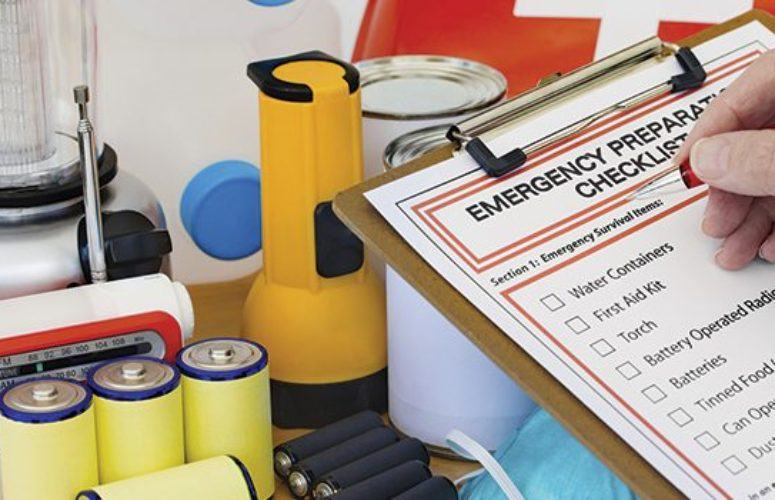
Five Ways Businesses Can Plan for Emergencies
In a post-Superstorm Sandy era, up to 40 percent of small businesses never re-open.
By Don Newman On Oct 19, 2015The height of hurricane season is upon us. Is your business prepared for power outages, flooding, property damage, lost work time and more?
Because up to 40 percent of small businesses never re-open following a disaster, the New Jersey Business Action Center has five recommended strategies to help small businesses ride out the next big storm:
Maintain an emergency contact list: When preparing for an emergency, it is important to keep a mobile phone / e-mail list of employees, suppliers and customers and circulate it to key staff members. A business owner should leave extra keys and the alarm code with a trusted employee or friend. Be sure to forward the business’ phone line to an accessible mobile phone during the emergency and that you can access business e-mails remotely. Finally, it is crucial to train and prepare ancillary workforce that could fill in for your team, if needed.
Make sure your insurance is current: Review your insurance coverage with an agent or your insurance center; specifically check the status of your business’s interruption insurance. If disaster occurs, you can file a business interruption insurance claim detailing lost income and steps required before the business can reopen. Business owners will also want to keep copies of all important documents in the “cloud” and/or off site, including employee and supplier contact information, customer lists and back-ups of computer files.
Prepare a disaster supply kit: Inspect your building(s) in advance to determine what impact a disaster could have on the facility. Have a disaster supply kit handy that includes a battery-powered radio to access National Weather Service information, a battery-powered electronic device charger, a first aid kit, a fire extinguisher, flashlights, extra batteries, waterproof plastic bags and more.
Organize your financial statements: Gather sales records, profit and loss statements and income tax forms in advance as you will need these, along with records of extra expenses incurred, for an insurance adjuster. As a proactive precaution, file duplicate copies of financial documents offsite and/or in the cloud. Consider financial obligations you will have during interruption, such as payroll and debt service.
Re-open when your space is safe for employees: Make sure your building is clean and safe before allowing employees – your most valuable business asset – to return. Contact your insurance agency to have the building inspected prior to re-opening, and assess the damage done to the building and inventory. Have your electric, gas, phone and water service restored before you re-open the building for employees, customers and suppliers.
Although we can’t prevent natural disasters, business owners can take proactive measures to minimize disruption and reduce loss so you can return to normal operations as soon as possible.
About the Author: Don Newman serves as director of small business advocacy for the Business Action Center (BAC), New Jersey’s “one-stop” shop for businesses, helping companies to stay and grow in the Garden State. During Superstorm Sandy, the BAC was actively involved in the recovery effort and provided outreach to businesses throughout the state. For information on emergency planning and assistance with other business matters, contact the BAC at 1-866-534-7789 or www.NewJerseyBusiness.gov
Related Articles:






